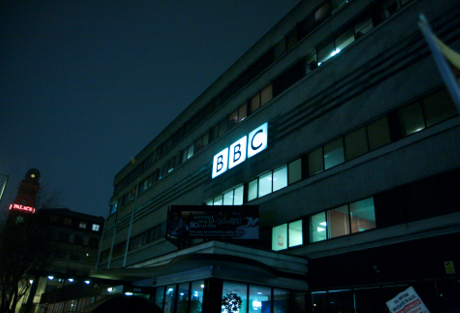Blog

With BBC iPlayer popularity down and the Conservative government launching an attack on the license fee, the future of the public-service broadcaster remains uncertain.
The Financial Times reported on Thursday that the number of requests to watch TV shows on BBC iPlayer fell by 7% in March. This is equivalent to 230 million unique requests. Additionally, the service only grew by 2%, the slowest it has grown since its 2007 inception. In contrast, Netflix is expected to grow at an annual rate of 20.6%.
On top of this, the new Conservative government are tabling plans to decriminalise the non-payment of the license fee, which the BBC estimates could cost £200m and result in channels closing. The license fee is the main source of income for the BBC, bringing in £3.7bn annually.
With the iPlayer stagnating, the license fee in jeopardy and competition increasing, will the BBC be able to survive in its current form?
Luckily for the BBC, despite the Conservative subliminal encouragement of cuts to the service, a cultural select committee summarised: “There currently appears to be no better alternative to funding the BBC in the near-term other than a hypothecated tax or the licence fee.” This provides the BBC with somewhat of a lifeline, as does its discontinuation of the Global iPlayer, which offered its international audience with a Netflix-style subscription platform. Now, the BBC will sell the rights to their programmes to overseas broadcasters. The popularity of shows such as Dr Who and Sherlock abroad suggests that the BBC could make a pretty penny from this.
However, the committee did also make it explicit that the days of the license fee are numbered. “The licence fee in its current form is becoming harder to sustain given the changes in communication and media technology and changing audience needs and behaviours… as a minimum the licence fee must be amended to cover catch-up television as soon as possible.”
This is a view echoed by Evelyn de Rothschild. He argues that the license fee is a better alternative to subscriptions or advertising, but poses an interesting question in his column in the Financial Times: “Why, after all, should people who watch BBC programmes online after they have broadcast piggyback for free on the £3.7bn contributed by those who do cough up?”
But how would this work? Paying £145.50 a year for the use of iPlayer could be viewed to be extortionate. After all that’s around £12 a month and there can be arguments made that the BBC’s output isn’t quite up there with the Netflix originals such as House of Cards and Bloodline. Add in the fact that BBC iPlayer only hosts shows for 30 days whereas shows have much more longevity on Netflix, which also hosts classics such as The Office and Gavin & Stacey, the Netflix monthly price of £6 appears much more attractive.
But what about a broadcasting levy? A tax on all households regardless of whether they have a TV or use the BBC services? A similar levy was introduced in Germany in 2013 and is based on the assumption that the vast majority will consume BBC services at some point. Given that the license fee is split between TV, radio, online and other services and that 96% of the country consume BBC services once a week, a levy seems a reasonable alternative to the license fee. It would ensure that all services are paid for, even if a household doesn’t have a TV but uses iPlayer or the BBC website, and would be easier to collect and monitor than the license fee.
The license fee has survived until now, but it looks increasingly likely that the BBC will have to change their funding model and their online services in order to survive in an increasingly competitive broadcasting world. Expect changes, and expect them soon.
Academy tools to help you get a job
-

Free Watson Glaser Practice Test
Understand the test format, compare your performance with others, and boost your critical thinking skills.
